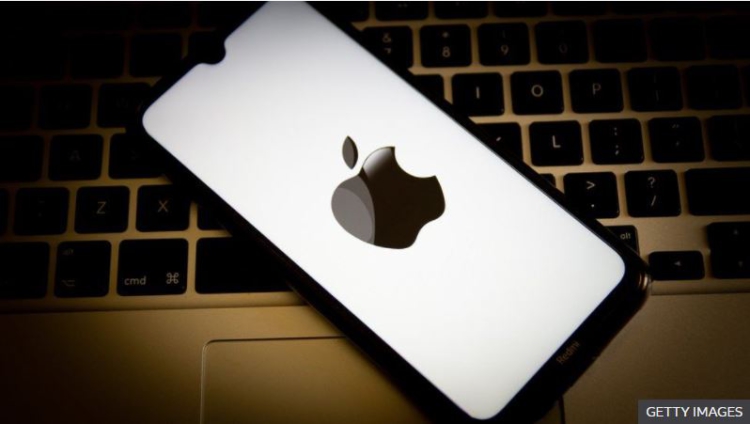Apple has updated its software for iPhones to address a critical vulnerability that independent researchers say has been exploited by notorious surveillance software to spy on a Saudi activist.
Researchers from the University of Toronto's Citizen Lab said the software exploit has been in use since February and has been used to deploy Pegasus, the spyware made by Israeli firm NSO Group that has allegedly been used to surveil journalists and human rights advocates in multiple countries.
The urgent update that Apple (AAPL) released Monday plugs a hole in the iMessage software that allowed hackers to infiltrate a user's phone without the user clicking on any links, according to Citizen Lab. The Saudi activist chose to remain anonymous, Citizen Lab said.
Apple credited the Citizen Lab researchers for finding the vulnerability.
"Attacks like the ones described are highly sophisticated, cost millions of dollars to develop, often have a short shelf life, and are used to target specific individuals," Ivan Krstić, head of Apple Security Engineering and Architecture, said in a statement.
Krstić said Apple rapidly addressed the issue with a software fix and that the vulnerability is "not a threat to the overwhelming majority of our users."
Still, security experts encouraged users to update their mobile devices for protection.
In a statement, NSO Group did not address the allegations, only saying, "NSO Group will continue to provide intelligence and law enforcement agencies around the world with life-saving technologies to fight terror and crime."
The firm has previously said its software is only sold to vetted customers for counterterrorism and law enforcement purposes.
Researchers, however, say they have found multiple cases in which the spyware was deployed on dissidents or journalists. In 2019, Citizen Lab analysts alleged that Pegasus was used on the mobile phone of the wife of a slain Mexican journalist.
In a lawsuit filed in 2019, Facebook accused NSO Group of being complicit in a hack of 1,400 mobile devices using WhatsApp. (NSO Group disputed the allegations at the time.)
The proliferation of easy-to-use mobile hacking tools has given governments around the world a new and stealthy means of targeting adversaries. Sophisticated spyware made by NSO Group and other vendors has been reportedly used from Uzbekistan to Morocco.
The surge in spyware prompted a United Nations panel of human rights experts in August to call for a moratorium on the sale of such surveillance tools. The UN panel said the ban should remain in place until governments have "put in place robust regulations that guarantee its use in compliance with international human rights standards."
Latest Stories
-
Family members “fight” over $3k donation from GBA- Wife of deceased Nigerian boxer reveals
12 minutes -
Scars of Hooliganism: Former RTU star Nawass opens up on brutal attack that ended his career
18 minutes -
‘Side Chic’ saga: Deborah Adablah breaks silence after 45 days in jail
23 minutes -
Consistency is key to keeping Black Stars place – Lawrence Agyekum
44 minutes -
Amir Khan praises President Mahama’s sons for bringing major boxing event to Ghana
49 minutes -
Amir Khan credits Prez Mahama’s children for supporting “historic” promotion in Ghana
54 minutes -
Supreme Court’s Celebrity Alcohol Ad Ban roils Ghana one year on
1 hour -
Partey’s Arsenal contract renewal talks hit a snag
1 hour -
Former basketball player Bryan-Amaning urges Ghana Federation to set sport on right path
1 hour -
Ghana receives shipment of Human Papillomavirus (HPV) vaccines
1 hour -
Kwabena Owusu becomes free agent after Ferencvaros exit
1 hour -
Police arrest school proprietor for preventing BECE candidates from writing exam
2 hours -
Deepen fight against galamsey to restore public trust – Dr Ken Ashigbey urges gov’t
2 hours -
Ken Ashigbey criticises government over failure to revoke LI 2462
2 hours -
Galamsey crisis: GCAG demands urgent government action amid broken promises
2 hours

